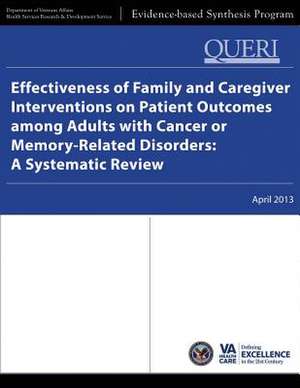Effectiveness of Family and Caregiver Interventions on Patient Outcomes Among Adults with Cancer or Memory-Related Disorders
Autor Department Of Veterans Affairs, Health Services Research &. Deve Serviceen Limba Engleză Paperback
Preț: 154.30 lei
Nou
Puncte Express: 231
Preț estimativ în valută:
29.53€ • 30.64$ • 24.68£
29.53€ • 30.64$ • 24.68£
Carte indisponibilă temporar
Doresc să fiu notificat când acest titlu va fi disponibil:
Se trimite...
Preluare comenzi: 021 569.72.76
Specificații
ISBN-13: 9781491249697
ISBN-10: 1491249692
Pagini: 222
Dimensiuni: 216 x 279 x 12 mm
Greutate: 0.53 kg
Editura: CreateSpace Independent Publishing Platform
ISBN-10: 1491249692
Pagini: 222
Dimensiuni: 216 x 279 x 12 mm
Greutate: 0.53 kg
Editura: CreateSpace Independent Publishing Platform
